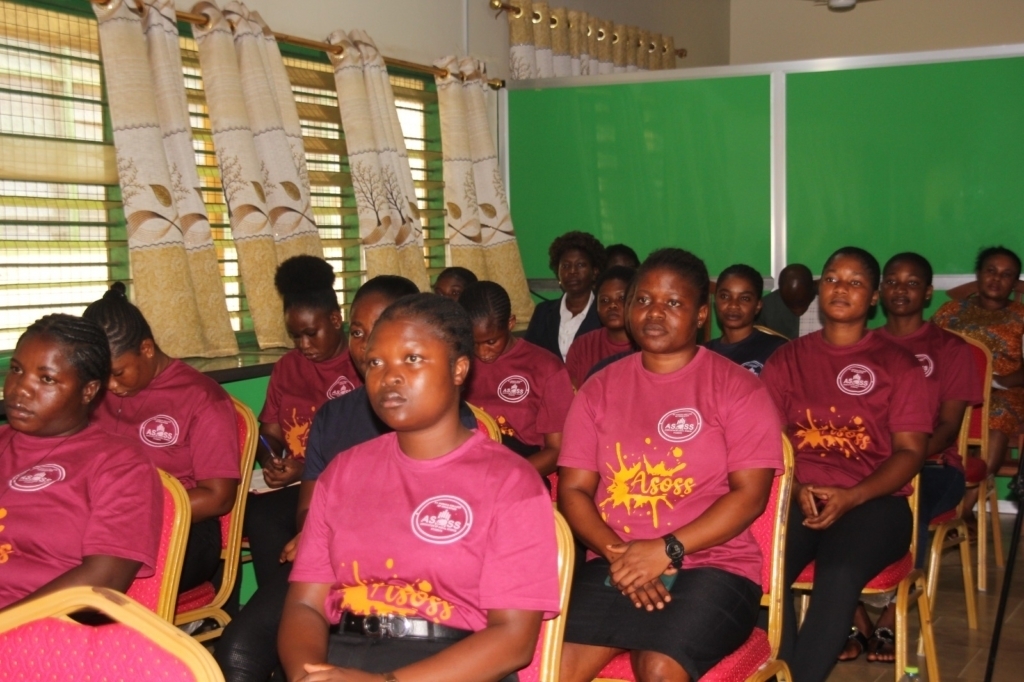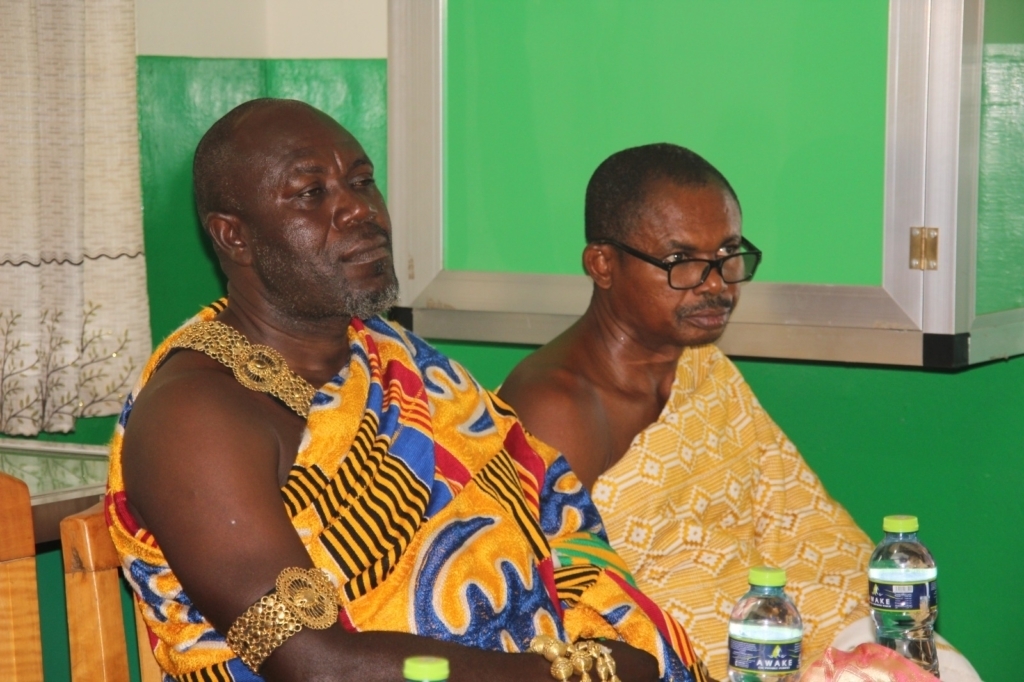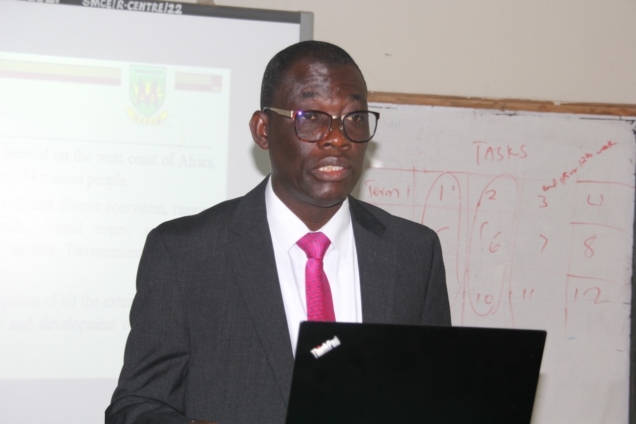Indigenous communities have vital knowledge about the local ecology which needs to be harnessed to preserve biodiversity and promote a balance in the ecosystem.
According to the Principal of St. Monica's College of Education, Dr. David Okyere Korankye, any endeavour to remedy the problem of environmental degradation will be ineffective unless adequate alternative livelihoods are provided.
Speaking at a public lecture at St. Monica's College of Education on environmental degradation in Ghana, Dr. Korankye said he believes indigenous people provide strong communal systems for managing natural resources, including forests and water bodies.
“Sustainable and viable alternative livelihood; I am poor and at the same time hungry – I want to eat so when you are telling me that I should not do galamsey - I should not cut down trees for firewood then what alternative are you putting there for me?” Dr. Korankye asked.

He believes the government should give significant consideration to the country's job predicament.
“When you go to these galamsey sites, they are mostly young people and their minds are that they want what they will eat – nothing else. So if you want to stop them, then you have to provide alternatives,” he added.
According to him, indigenous knowledge in plant and animal species, habitats and relationships needs to be harnessed to preserve biodiversity.
He said incorporating local decision-making processes and empowering traditional leaders remain essential in sustainable land and resource management.
Dr. Korankye further stated that traditional ecological knowledge can be used to guide the selection and sustainable harvesting of medicinal plants, the preservation of sacred forests and biodiversity hotspots, and the preservation of traditional seeds and crop varieties.
The Principal noted that indigenous communities have developed effective methods for water conservation and management.
He believes traditional rainwater harvesting techniques, such as building small reservoirs and underground storage systems, can help capture and store water during the rainy season for use during the dry season.
Indigenous groups in Ghana have been actively participating in community-based conservation activities for many years.

They create community-managed protected areas, wildlife sanctuaries, and sustainable hunting and fishing techniques. These projects not only conserve biodiversity but also give economic opportunities for communities through eco-tourism and sustainable resource utilisation.
According to Dr. Korankye, it is critical to recognise and appreciate indigenous knowledge and practices in combating environmental degradation in Ghana.
Environmental deterioration has far-reaching consequences in Ghana, affecting various facets of the country's socioeconomic growth.
It has resulted in biodiversity loss, with many plant and animal species nearing extinction.
The loss of plant and animal species as a result of the destruction of forests, marshes, and other natural habitats has resulted in a decrease in genetic diversity.
The loss of biodiversity has also had an impact on the ecosystem services provided by these habitats, such as water regulation, soil conservation, and climate regulation.
Latest Stories
-
Truck driver alleged to have caused train accident jailed 6 months
3 mins -
Music review: Okyeame Kwame proves rap dexterity on ‘No Competition’
10 mins -
How a 23-year-old fooled the internet with an AI Kendrick Lamar diss track
30 mins -
No man should be intimidated by the strength of a woman – Charlotte Oduro
33 mins -
Ghana is not immune to terrorist attack – National Security
34 mins -
WAFU B U-17 Championship: Ghana drawn in Group A, face Benin and Cote d’Ivoire
56 mins -
Two hit by stray bullet as Police clash with ‘wee smokers’
1 hour -
Okyeame Kwame aims for another Artiste of the Year win after 15 years
1 hour -
NAGRAT gives government one-week ultimatum to redeem unpaid pensions for 700,000 workers
1 hour -
Deloitte launches Technology, Media and Telecom predictions for 2024
2 hours -
Meta AI expands to Ghana, Nigeria and other countries in Africa; adds new features
2 hours -
GPL: Expect a new Kotoko against Samartex – Ogum tells fans
3 hours -
Court orders service of notice for DNA test to Mohbad’s wife
3 hours -
Changes to Ghana’s oil and gas royalty and licensing scheme to be implemented in 2024
3 hours -
Ghana’s oil production to rebound in 2024 growing by 5% – Fitch Solutions
3 hours

